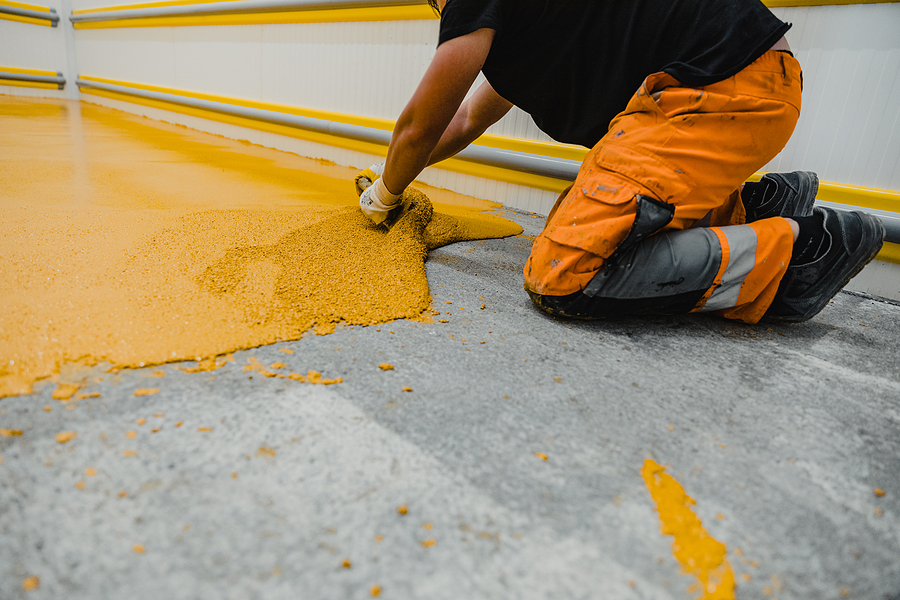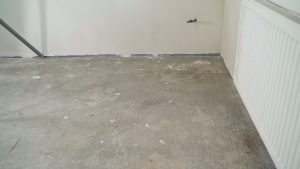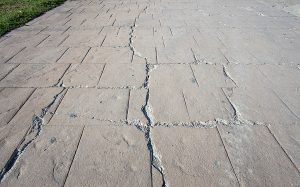In industrial environments, safety isn’t just a priority—it’s a necessity. From manufacturing plants and warehouses to commercial kitchens and distribution centers, the condition of the flooring can directly impact safety outcomes, operational efficiency, and compliance with health and safety standards. One of the most effective ways to improve both durability and safety underfoot is through the use of heavy-duty industrial epoxy.
These epoxy coatings go far beyond just aesthetics. They play a key role in creating slip-resistant surfaces, clearly defined safety zones, and tough barriers against spills, abrasions, and heavy traffic. Whether you’re building new or upgrading an existing floor, investing in the right industrial epoxy for safety zones is a long-term solution to minimize workplace hazards and enhance productivity.
What Is Heavy-Duty Industrial Epoxy?
Heavy-duty industrial epoxy is a high-performance flooring system made from a two-part resin and hardener mixture. When combined, the materials chemically bond to the concrete surface, creating a solid, non-porous, and highly resilient floor coating. This makes it especially suitable for high-traffic, high-impact areas such as loading docks, production lines, and mechanical shops.
Unlike basic paints or sealants, industrial epoxy is formulated to withstand extreme wear and tear. It resists moisture, chemicals, stains, and even thermal shock, making it one of the most reliable floor finishes available today.
Safety Benefits of Industrial Epoxy for Work Environments
The benefits of using industrial epoxy for safety zones extend far beyond appearance. Here are some of the key ways epoxy flooring systems directly contribute to a safer workplace:
Slip-Resistant Surfaces
Slips and falls remain one of the most common causes of workplace injuries. Epoxy coatings can be customized with anti-slip additives, such as quartz, sand, or aluminum oxide, to increase surface traction. This helps prevent accidents in areas prone to spills, moisture, or oil.
High Visibility for Safety Zones
Clear visual communication on the floor is essential for keeping both workers and visitors safe. Epoxy coatings can be applied in different colors to mark off walkways, hazard zones, forklift lanes, and emergency exits. The strong color contrast ensures that zones remain visible even in low-light or high-traffic areas.
This is particularly useful in facilities that use concrete floor polishing as a base. By overlaying polished concrete with brightly colored epoxy striping, you get the best of both durability and visual clarity.
Chemical and Impact Resistance
In environments where spills are common—from cleaning agents to corrosive chemicals—a standard concrete floor just won’t hold up. Epoxy coatings offer superior chemical resistance, protecting the structural integrity of the floor and reducing slip hazards from absorbed liquids. Heavy-duty industrial epoxy also holds up against impacts from dropped tools or rolling equipment, helping prevent chips and cracks that could become tripping hazards over time.
Easy Maintenance for a Cleaner Facility
Dust and debris accumulation are often overlooked safety risks. The seamless surface of an epoxy-coated floor is easy to clean and maintain, eliminating areas where contaminants can collect. Regular sweeping and mopping are all that’s needed to keep the floor clean, reducing airborne particles and promoting better indoor air quality.
Application Areas for Safety Epoxy Coatings
The versatility of epoxy coatings means they can be tailored to suit a wide range of environments. Here’s where heavy-duty industrial epoxy is making the most impact:
- Manufacturing Facilities: Epoxy coatings mark off machinery boundaries, safe walkways, and emergency equipment access points.
- Food Processing Plants: Non-slip epoxy helps maintain sanitary conditions while preventing slip-and-fall incidents.
- Warehouses and Distribution Centers: High-visibility epoxy lines separate pedestrian lanes from forklift routes.
- Parking Garages: Epoxy coatings improve surface traction and visibility while protecting against oil and fluid stains.
- Auto Shops and Mechanical Bays: Chemical-resistant epoxy withstands oils, coolants, and heavy equipment.
Concrete Floor Polishing and Epoxy: The Perfect Combo
For facilities looking to upgrade their flooring system, concrete floor polishing and epoxy coatings are a powerful combination. Polished concrete offers a dense, glossy surface that’s resistant to stains and wear, while epoxy adds a layer of protection and customization.
Before applying epoxy, concrete must be properly prepared—often through grinding or polishing—to ensure maximum adhesion. A well-polished substrate enhances the bond, extending the life of the epoxy and maintaining a smooth, level finish over time.
By combining these two flooring methods, facility managers can achieve not only a safe and functional workspace but also one that reflects professionalism and quality.
Long-Term Cost Benefits
While epoxy floor installation does require upfront investment, the long-term cost savings are significant. Here’s how:
- Reduced Repair Costs: Epoxy prevents concrete degradation, saving on repairs.
- Lower Cleaning Costs: Its seamless, non-porous surface is easy to maintain.
- Fewer Workplace Injuries: Improved safety reduces insurance claims and downtime.
- Long Lifespan: Heavy-duty epoxy floors can last 10–20 years with proper care.
Over time, these savings add up, making epoxy flooring a smart investment for any facility focused on performance and safety.
Stat to Consider
According to the U.S. Bureau of Labor Statistics, 2.6 million disabling workplace injuries in private industry, many caused by slips, trips, and falls, many of which are preventable with proper floor treatments and visual safety cues.
This underscores the importance of choosing reliable, high-performance materials like heavy-duty industrial epoxy to support a safer work environment.
Final Thoughts
Enhancing safety in industrial spaces starts from the ground up. With the durability, visibility, and protection offered by heavy-duty industrial epoxy, you’re not just improving your floors—you’re actively reducing risk and protecting your workforce.
From preventing slips and marking safety zones to defending against harsh chemicals and heavy machinery, epoxy delivers consistent performance in demanding environments. Paired with concrete floor polishing, it becomes a complete solution for clean, resilient, and regulation-ready flooring.
Ready to Upgrade Your Floors?
If you’re ready to enhance safety and durability in your facility, reach out to our team for a custom consultation. We specialize in heavy-duty industrial epoxy and precision-applied safety coatings that meet your industry’s specific needs.
Contact Custom Concrete Prep & Polish today to learn more about our epoxy flooring solutions and how they can help protect your team and investment.



